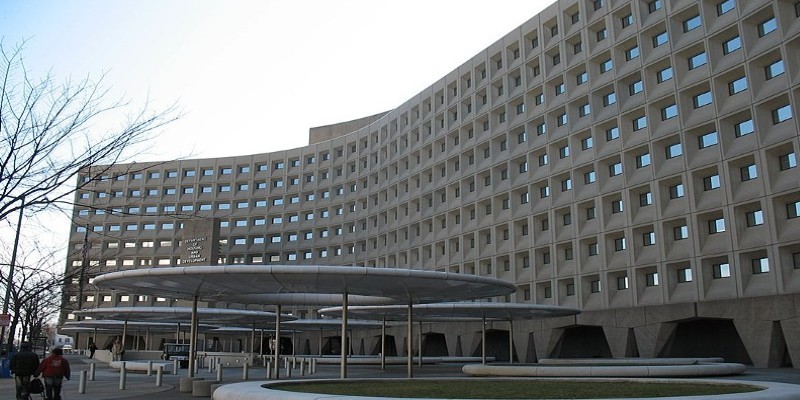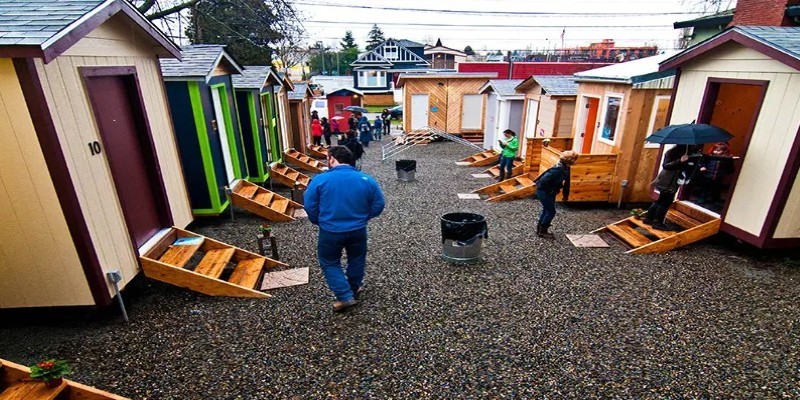Affordable housing programs offer essential support for individuals and families who may otherwise struggle to find stable, reasonably priced housing. These programs aim to make housing accessible for low- to moderate-income households, helping people avoid financial instability and homelessness. In the United States and many other countries, affordable housing is provided through government-run programs, nonprofit organizations, or local initiatives. However, qualifying for these programs involves meeting specific criteria, which can be complex. This article explores the different factors in qualifying for affordable housing and how to navigate this process effectively.
Understanding Affordable Housing Programs
Affordable housing programs come in many forms, each with specific goals and eligibility criteria. These programs are generally designed to offer homebuyers lower rental rates or financial assistance. Typical programs include public housing, Housing Choice Vouchers (Section 8), and Low-Income Housing Tax Credit (LIHTC) housing. The primary focus of all these programs is to provide stable, safe, and affordable housing for individuals and families whose incomes fall below certain thresholds.
Public housing is often owned and managed by local housing authorities, while Housing Choice Vouchers (Section 8) allow recipients to rent from private landlords who accept the voucher. LIHTC housing, on the other hand, involves partnerships between private developers and government programs that offer tax credits to developers who agree to set aside a portion of their rental units for low-income tenants.
Though each program's specific requirements can vary, most affordable housing programs have a few things in common: They consider income, family size, citizenship status, and sometimes history of renting or paying rent.
Income And Family Size Requirements
One of the key factors in qualifying for affordable housing is income. Most programs set income limits based on the median income for the area where you live. These limits are adjusted depending on family size. The U.S. Department of Housing and Urban Development (HUD) sets these guidelines for various regions, varying from one city or state to another.

For most programs, the income limits are categorized as follows:
Very Low Income: Typically 50% of the area’s median income (AMI).
Low Income: Generally up to 80% of AMI.
Moderate Income: In some cases, 80-120% of AMI.
It's essential to determine your income eligibility early in the process, as this will often be the determining factor. For example, suppose your household income is above the designated low-income threshold but below the moderate-income threshold. In that case, you may qualify for some affordable housing programs but not others.
Family size is another crucial factor. Larger families typically have higher income limits, meaning they can earn more and qualify for assistance. If your family has many dependents, such as children or elderly family members, you may be eligible for a higher income threshold. Housing programs take this into account when determining eligibility.
Citizenship And Immigration Status
Affordable housing programs are often restricted to U.S. citizens or legal immigrants. However, specific programs may have exceptions, such as allowing a non-citizen family member to reside in the unit, provided the primary household member is a U.S. citizen or legal resident.

Many programs require you to provide documentation of your citizenship or legal status as part of the application process. If you are an immigrant, you may need to provide additional documentation or evidence of your legal status, such as a green card, work visa, or other documentation the program accepts.
Rental History And Eviction History
Some affordable housing programs may consider your rental history when determining eligibility. For example, they may assess whether you have a record of paying rent on time, have been a responsible tenant, or have any past evictions. While affordable housing programs aim to serve those in need, they also want to ensure that the individuals receiving assistance will be good tenants in the future.

If you have an eviction on your record, it could impact your eligibility for specific programs. However, this depends on the program. For instance, the Housing Choice Voucher Program (Section 8) may allow you to qualify despite an eviction if it occurred several years ago and demonstrate a stable housing history since then.
Application Process
Applying for affordable housing can be time-consuming and competitive, especially in high-demand areas. Generally, applicants need to provide a range of documents that prove their identity, income, family size, and rental history. Standard documents required include:
Proof of identity (birth certificate, Social Security number, or immigration documents).
Proof of income (pay stubs, tax returns, or unemployment benefits).
Proof of family size (birth certificates or other documents showing dependents).
Criminal background check (depending on the program).
Because there are often more people seeking affordable housing than available units, many programs have waiting lists. Some waiting lists are based on first-come, first-served principles, while others may prioritize based on factors such as homelessness or disabilities. In areas with high demand, waiting lists can be years long, so applying early is essential.
Special Considerations For Specific Populations
Certain groups of people may have special considerations when applying for affordable housing. These groups include individuals with disabilities, elderly applicants, veterans, and those experiencing homelessness.
Individuals with disabilities: Many affordable housing programs have units specifically designed to meet the needs of individuals with disabilities. These units might include wider doorways, accessible bathrooms, or other features to help residents live more independently.

Elderly applicants: Some affordable housing programs prioritize elderly applicants, especially those 62 or older. These programs may offer additional assistance or different eligibility requirements.
Homeless individuals: Many affordable housing programs provide additional support for individuals who are homeless or at risk of homelessness. These programs often aim to provide more immediate access to housing and may include extra support services such as case management or job placement assistance.

Final Thoughts
Qualifying for affordable housing programs requires understanding the specific eligibility criteria and carefully following the application process. It's essential to stay organized, gather all required documents, and meet the necessary income and family size requirements. While the process can sometimes be long and competitive, various support systems are in place to help individuals and families find the affordable housing they need.
By knowing the requirements, taking advantage of available resources, and submitting a complete and accurate application, you can increase your chances of qualifying for the affordable housing programs that best suit your needs. With the proper preparation, you can secure stable housing that allows you to focus on other aspects of your life, whether pursuing a career, attending school, or taking care of your family.





